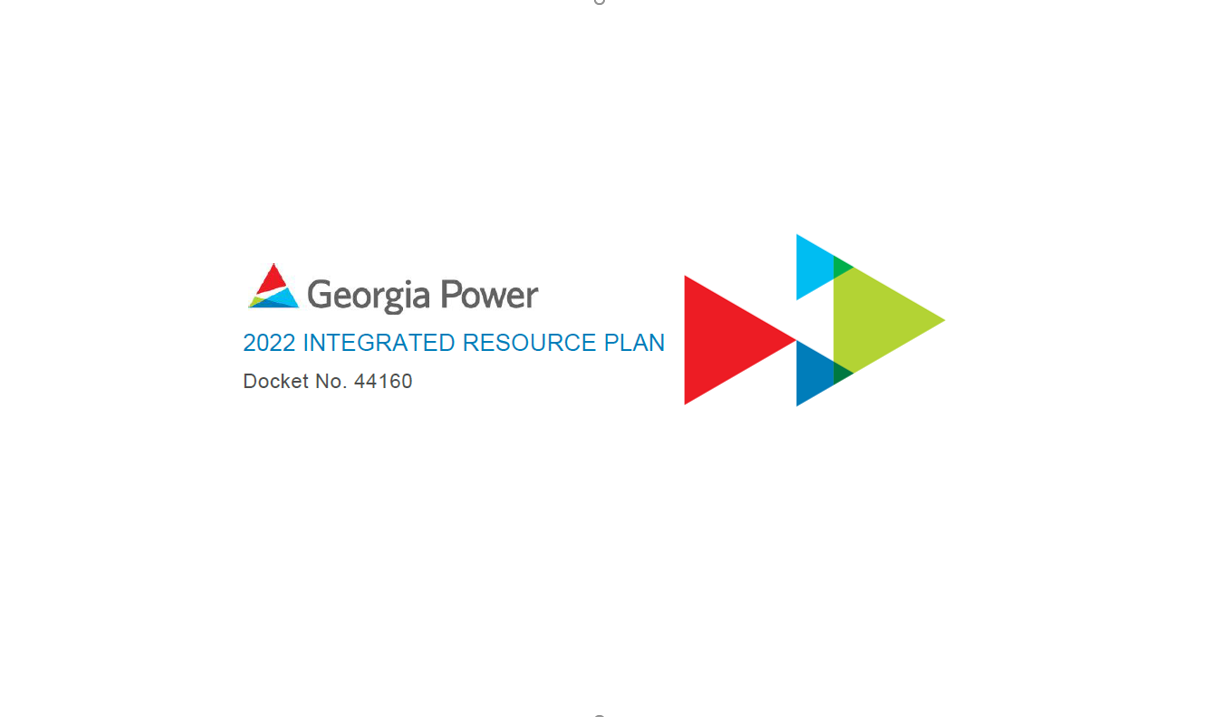
Georgia Power Company 2022 Integrated Resource Plan
The Georgia Public Service Commission rendered a decision on the Georgia Power Company 2022 IRP in July 2022 (click here for a copy of the final agreement). The final agreement among specially-selected intervening parties includes the following:
Inadequate procurement of only 2,100 MWac renewable resources over the next 3 years, when the amount should be 3x greater
Coal-burning Bowen Units 3-4 are given license to operate beyond 2028 for *transmission reliability* reasons (which occur when ignoring and excluding DERs from IRP modeling, as Georgia Power Company does)
Long-term gas-fired Power Purchase Agreements are approved for Wansley Unit 7, Dahlberg Units 1-3, 5-6, 8-10, Harris Unit 2, and Monroe Units 1-2, despite being unneccessary and not in the public’s benefit. The PPAs include a generous additional sum of $3/kW-yr for the privilege of procuring *market* capacity from direct Georgia Power Company affiliate and procuring *market* natural gas fuel from a direct Georgia Power Company affiliate
Spending for a North Georgia Reliability Plan to address Plant Bowen retirement and growing load in Northwest Georgia (again, absent any analysis at all of integrated distributed energy resources)
Develop a Hosting Capacity Tool (a specific request from this intervenor in the 2019 IRP) to help plan for rooftop solar projects and deployment by demonstrating where the distribution grid has spare capacity for bidirectional <10kW generators
Requirement to procure 200 MW of distributed generation solar resources, even as Georgia Power Company discriminate against proper remuneration of the value of distributed rooftop solar to the electric grid
Continued delay on coal combustion residual cost accounting
In summary, the Georgia Power Company 2022 Integrated Resource Plan as stipulated fails to meet the basic standard for a prudent and reasonable plan that is in the economic interests of Georgia electric ratepayers (as required by Georgia law).
Customers of Georgia Power Company continue to face ever higher electric bills for poor management decisions, at the direct expense of hardworking Georgians and our business competitiveness as a state.
We need a Georgia Public Service Commission that acts in the interests of hardworking Georgians, not the interests of shareholders in who live far outside Georgia.
Direct Testimony for the 2022 IRP
GCES filed direct testimony that describes the many flaws and red flags in the 2022 IRP, which result in a sub-optimal plan that is not in the interests of Georgia and Customers of the Company, nor is it compliant with Georgia Code or Commission Rules.
Many other Interveners offered excellent expert witness testimony in support of more clean energy.
Michael Goggin on behalf of the Southern Renewable Energy Association (SREA) reached all of the same conclusions that I reached in my detailed review, namely that the 2022 IRP was developed and designed to be sub-optimal.
Arnie Olson on behalf of the Georgia Large Scale Solar Association (GLSSA) makes the strong case for adopting best practices in IRP modeling and provides further discussion of the constraining assumptions that Georgia Power Company employed in this IRP, which resulted in a sub-optimal proposed portfolio.
April McEwen and Colin McBeath on behalf of Restore Chattooga Gorge Coalition wrote, “Except for its impoundment at Lake Tugalo, the final four miles of the Chattooga River would be eligible for inclusion in the National Wild & Scenic River system and the Georgia Scenic River system.” Removal of Tugalo Dam would reveal four (4) new miles of exciting whitewater to a river that currently draws 100k annual visitors. As a once and future boater who has run Tallulah Gorge and Section 4 of the Chattooga, I very much support the idea of decommissioning Tugalo Dam.
Motion to Reject the 2022 IRP
GCES filed a Motion to Reject the Georgia Power Company 2022 Integrated Resource Plan, as filed, and require that the Company provide an Alternative Plan that is in the public interest. The present 2022 IRP fails to adequately demonstrate the economic, environmental, and other benefits to Georgia and to customers of the Company.
Click here for the Motion to Reject the 2022 IRP.
Epilogue: Chairwoman Pridemore summarily denied GCES’s Motion without providing an opportunity for an oral hearing and without having read the Motion to provide a substantive response. This is a classic example of Regulatory Capture, where the regulator does the bidding of the monopoly utility no matter how poor a decision it is for the Customers of the monopoly utility, as evidenced in the Motion, and no matter the statutory requirements of the Georgia Code.
Click here for the denial of the Motion.
Transcripts of Witnesses for Georgia Power Company
Below are links to time-stamped transcripts of the sworn, full oral testimony of the three Georgia Power Company expert witness panels, held April 4-5, 2022.

